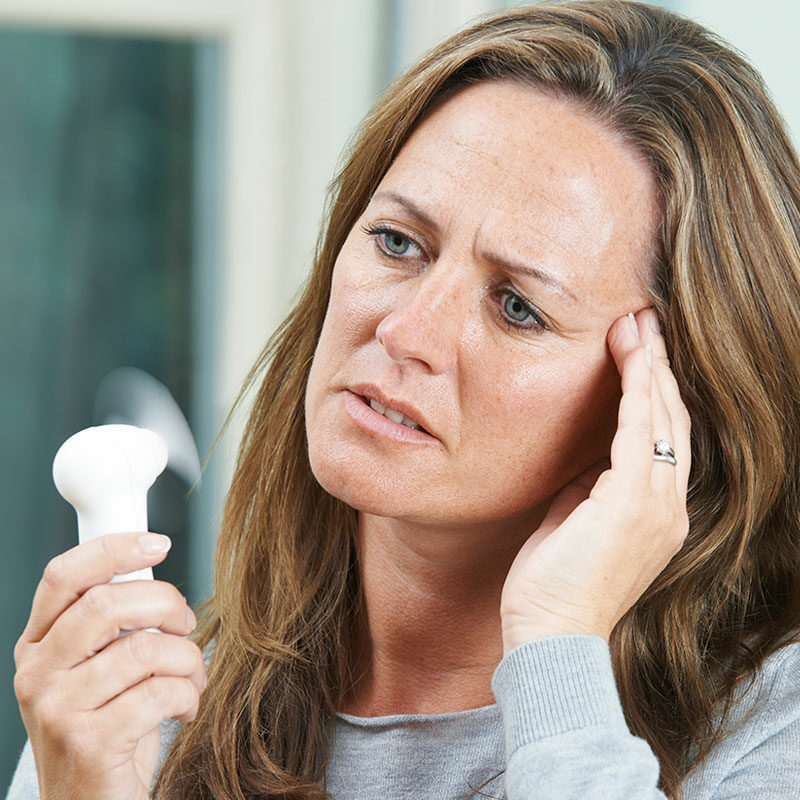The Current Research Study on Hormone Replacement Therapy: What to Anticipate
Recent innovations in hormone replacement treatment (HRT) suggest a significant change in the direction of individualized treatment strategies that straighten with private health accounts. This tailored approach not just aims to enhance the effectiveness of HRT in managing menopausal signs but additionally seeks to deal with safety problems related to both synthetic and bioidentical hormoness. As new understandings emerge concerning the potential benefits for bone thickness and cognitive function, concerns arise regarding the implications for future therapy protocols. These growths pave the means for an extra nuanced understanding of HRT, triggering a more detailed evaluation of arising fads and their sensible applications.
Overview of Hormone Replacement Therapy
Hormone Substitute Treatment (HRT) incorporates a series of medical treatments created to ease signs and symptoms connected with hormone inequalities, specifically during menopause in females and andropause in men. This therapy commonly involves the administration of hormoness such as testosterone, progesterone, and estrogen to bring back hormone levels that decline with age or due to specific clinical problems.
For ladies, HRT is usually made use of to take care of signs and symptoms such as warm flashes, night sweats, mood swings, and genital dry skin. It can be delivered through numerous forms, including tablets, gels, shots, and spots. In males, HRT may aid resolve problems like low libido, fatigue, and loss of muscular tissue mass, with testosterone being the main hormone provided.
The decision to seek HRT is influenced by factors such as symptom severity, health and wellness history, and specific preferences. While HRT can offer substantial relief, it is not without possible risks, including a raised probability of certain wellness problems. A detailed assessment with a medical care service provider is necessary to assess the threats and advantages, ensuring that patients make informed choices concerning their therapy choices.
Current Searchings For on Performance

Additionally, emerging proof recommends that HRT might also use advantages beyond symptom relief. For circumstances, some researches show a possible positive effect on bone thickness, minimizing the risk of weakening of bones in postmenopausal women. Furthermore, recent searchings for have actually explored the role of HRT in improving cognitive feature, with some research study suggesting that early treatment might aid maintain memory and cognitive health and wellness.
It is necessary to note that private feedbacks to HRT can vary dramatically, and factors such as age, timing of initiation, and kind of hormone therapy might affect effectiveness. Continuous study proceeds to fine-tune our understanding of HRT's advantages, leading the means for customized approaches tailored to specific demands and circumstances.
Security Considerations and Dangers
The security account of Hormone Substitute Therapy (HRT) is a critical aspect that calls for mindful factor to consider, especially given its extensive usage amongst postmenopausal ladies. While HRT can properly improve and relieve menopausal signs high quality of life, it is necessary to evaluate the associated dangers against its advantages.
Research study has suggested that HRT may enhance the threat of certain health and wellness conditions, including heart disease, stroke, and particular kinds of cancer cells, such as breast and endometrial cancer. The extent of these threats can vary based on numerous factors, consisting of the kind of hormoness made use of, the technique of delivery, the period of therapy, and the person's individual and household case history.
Specifically, women with a background of thromboembolic occasions or those with pre-existing problems might encounter increased dangers. It is important for doctor to conduct detailed analyses and engage in conversations with patients concerning their particular threat accounts prior to starting HRT. Ultimately, a customized approach to HRT can aid reduce prospective risks, ensuring that the therapy remains a practical option for ladies seeking relief from menopausal signs and symptoms while focusing on safety and security.
Common Adverse Effects
Lots of ladies undergoing Hormone Substitute Therapy (HRT) experience a variety of common adverse effects that can impact their general well-being. These side results differ in intensity and can affect the choice to continue or change therapy.
Among one of the most frequently reported side effects is breast inflammation or swelling, which is commonly short-term yet can be uncomfortable. Mood swings and modifications in emotional stability are likewise typical, as hormone fluctuations may bring about increased irritation or stress and anxiety. In addition, some women report experiencing bloating or intestinal pain, which can impact everyday tasks.
Genital blood loss or spotting might happen, specifically throughout the preliminary phases of therapy, read review and while it commonly settles, it may demand additional analysis. Weight gain is an additional problem, with some ladies discovering adjustments in their body composition during HRT.
Other potential adverse effects include frustrations and tiredness, which can significantly impact quality of life. It is vital pop over to these guys for women to go over any type of negative effects with their doctor to establish the most effective strategy, whether it be changing the dose or discovering alternate therapies. Proper administration can help ease these concerns and boost the benefits of HRT.
Future Instructions in Research Study

Furthermore, the exploration of bioidentical hormoness is obtaining momentum, as researchers look for to review their efficiency and security compared to typical artificial hormoness. Examinations into the long-term impacts of HRT on cardiovascular wellness, bone density, and cognitive function are essential, click here to find out more specifically as ladies live longer, demanding an extensive understanding of HRT's implications over expanded periods.
Additionally, recurring researches are analyzing non-hormonal alternatives and accessory therapies that could minimize the reliance on HRT while still addressing menopausal signs and symptoms. Lastly, the assimilation of innovation, such as telemedicine for remote surveillance and electronic health and wellness applications, might boost individual engagement and adherence to treatment strategies. Jointly, these future instructions promise to reinvent HRT and boost the quality of life for ladies browsing hormonal adjustments
Conclusion
To conclude, the most recent research on hormone substitute treatment underscores the significance of a tailored approach to therapy, boosting efficacy while reducing connected threats. Arising proof sustains the effectiveness of HRT in easing menopausal signs and symptoms and promoting general wellness, with recurring researches discovering the safety and security of bioidentical hormones and non-hormonal alternatives. This developing landscape of hormone monitoring indicates a change in the direction of even more patient-centered treatment, inevitably intending to boost wellness results for people experiencing hormonal inequalities.
Current advancements in hormone replacement treatment (HRT) indicate a substantial change towards individualized therapy approaches that straighten with private health and wellness profiles. In men, HRT may assist deal with issues like low sex drive, exhaustion, and loss of muscular tissue mass, with testosterone being the main hormone administered.
Recent research has illuminated the performance of Hormone Replacement Therapy (HRT) in alleviating symptoms linked with hormonal decrease.Improvements in hormone substitute treatment (HRT) research hold the promise of boosting treatment outcomes and decreasing side results for females experiencing hormone imbalances. Arising evidence sustains the efficiency of HRT in reducing menopausal signs and symptoms and advertising overall health, with recurring research studies exploring the safety and security of bioidentical hormoness and non-hormonal choices.